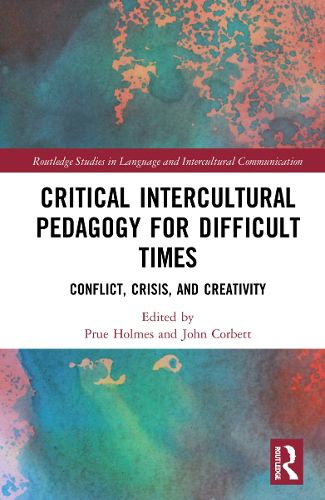Readings Newsletter
Become a Readings Member to make your shopping experience even easier.
Sign in or sign up for free!
You’re not far away from qualifying for FREE standard shipping within Australia
You’ve qualified for FREE standard shipping within Australia
The cart is loading…






This collection lends a critical decolonising lens to intercultural communication research, bringing together perspectives on how forms of education embedded in the arts and humanities can open up intercultural understanding among young people in conditions of conflict and protracted crises.
The book draws on case studies from a range of educational contexts in the Global South which engage in creative arts methodologies to foreground decolonising approaches to intercultural communication in which researchers question their own power in the research process. The volume offers intercultural resources that can be used by researchers and community support groups to foster active intercultural communication, dialogue, participation, and responsibility among young people in these settings and those who may be marginalised from them. The collection also highlights the reflexive accounts of researchers working in a transnational, interdisciplinary, and multilingual research network and the subsequent opportunities and challenges of working in such networks.
Advocating for intercultural understanding among young people in higher education and a greater focus on social justice in intercultural communication research, this book will be of interest to students and researchers in applied linguistics, language education, intercultural education, and multilingualism.
$9.00 standard shipping within Australia
FREE standard shipping within Australia for orders over $100.00
Express & International shipping calculated at checkout
This collection lends a critical decolonising lens to intercultural communication research, bringing together perspectives on how forms of education embedded in the arts and humanities can open up intercultural understanding among young people in conditions of conflict and protracted crises.
The book draws on case studies from a range of educational contexts in the Global South which engage in creative arts methodologies to foreground decolonising approaches to intercultural communication in which researchers question their own power in the research process. The volume offers intercultural resources that can be used by researchers and community support groups to foster active intercultural communication, dialogue, participation, and responsibility among young people in these settings and those who may be marginalised from them. The collection also highlights the reflexive accounts of researchers working in a transnational, interdisciplinary, and multilingual research network and the subsequent opportunities and challenges of working in such networks.
Advocating for intercultural understanding among young people in higher education and a greater focus on social justice in intercultural communication research, this book will be of interest to students and researchers in applied linguistics, language education, intercultural education, and multilingualism.